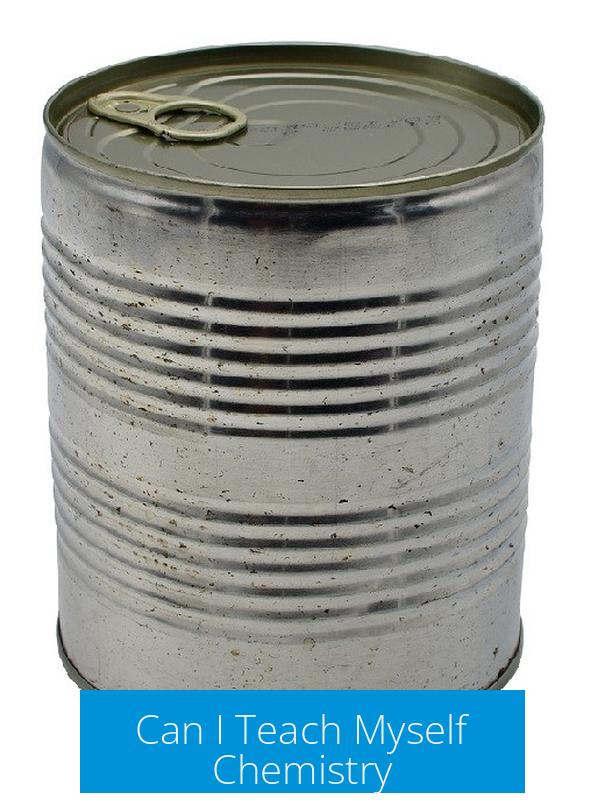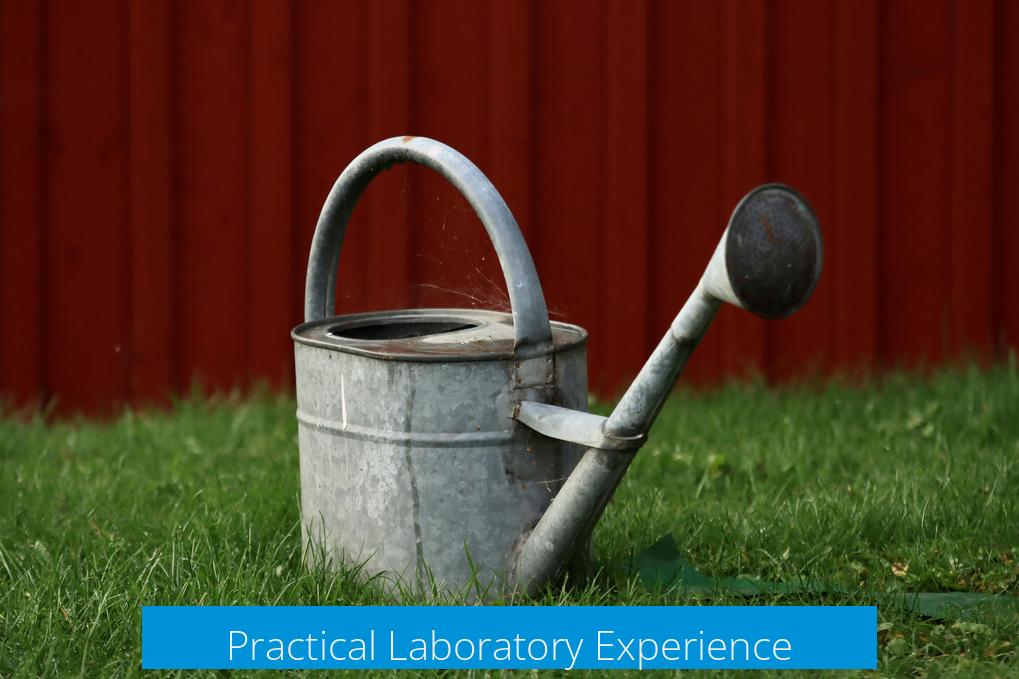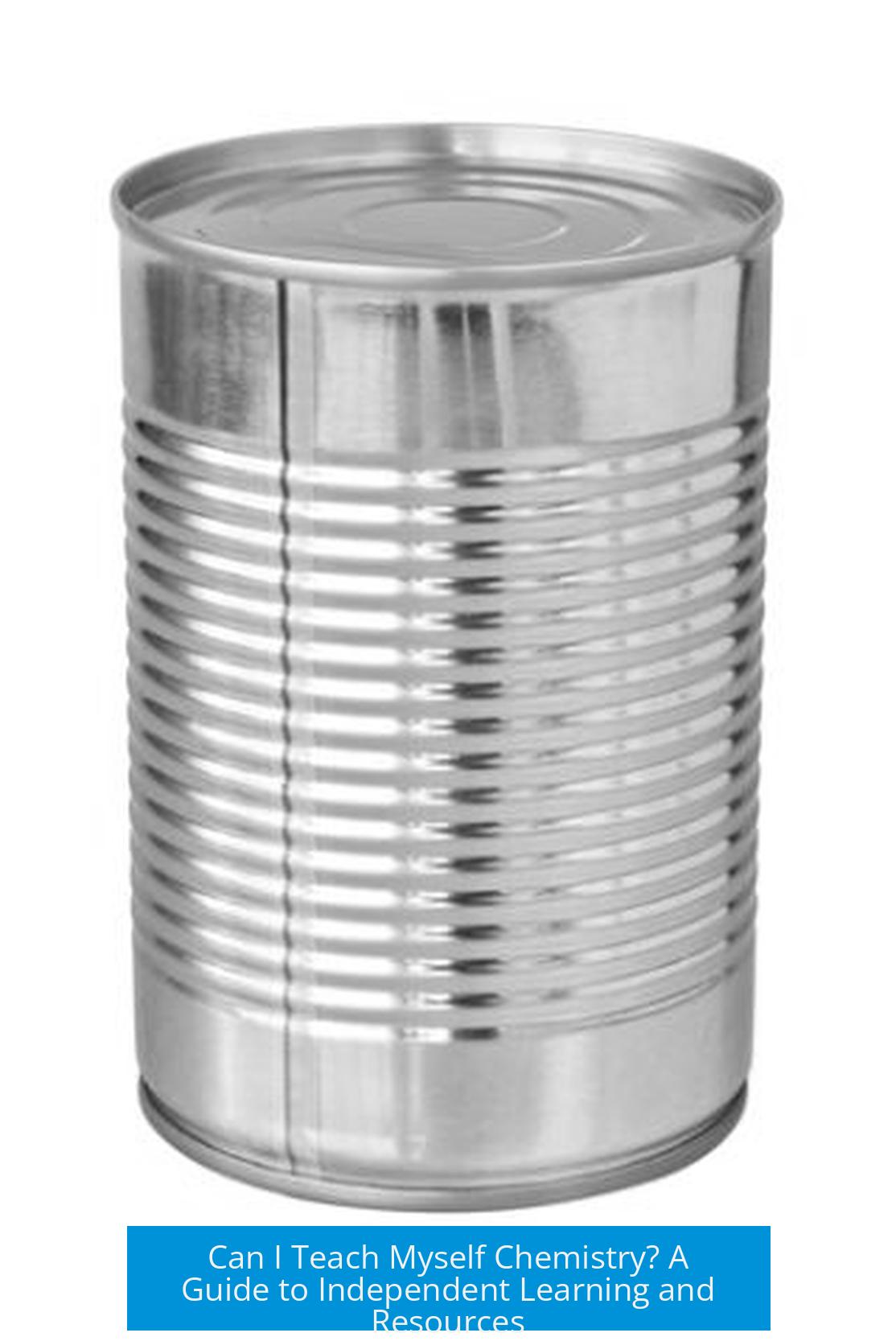Can I Teach Myself Chemistry?

Yes, you can teach yourself chemistry. Learning the fundamentals and basic principles of chemistry is achievable through textbooks, online courses, and interactive resources. However, mastering practical skills and advanced topics typically requires formal education and supervised laboratory experience.
Learning Chemistry Independently: Fundamentals and Basics
Starting chemistry on your own is entirely possible. Basic chemistry knowledge, particularly at the high school or introductory college level, can be acquired without attending formal classes.
- Use quality textbooks and workbooks to build a strong foundation. OpenStax provides free, peer-reviewed chemistry textbooks accessible online.
- High school level chemistry can be supplemented through simple at-home demonstrations sometimes called “kitchen chemistry” projects.
- Online platforms such as Khan Academy and YouTube channels offer free lectures and tutorials covering fundamental concepts and techniques.
Many learners find videos helpful to visualize abstract concepts such as chemical bonding, reaction mechanisms, and stoichiometry. Combining different types of resources enriches understanding and engagement.
Recommended Approach to Self-Teaching Chemistry
Self-study is more effective when it involves active engagement. Passively reading alone is insufficient. Attempting exercises and practical problems deepens comprehension and reveals gaps in knowledge.
- Work systematically through relevant chapters and complete end-of-chapter problems.
- Seek out lecture notes or attend open university lectures where possible.
- Keep a study journal to track concepts learned, difficulties encountered, and questions for further research.
- Join online communities or forums where you can ask questions and discuss chemical principles with peers or experts.
This structured, interactive approach builds both theoretical aptitude and problem-solving skills critical for chemistry.
Limitations of Self-Teaching Chemistry
Practical Laboratory Experience

One significant challenge in learning chemistry solo is acquiring hands-on laboratory skills. Chemistry involves precise measurements, handling reagents safely, and observing experimental nuances.
- Conducting many experiments at home is unsafe or impractical due to the need for specialized equipment and controlled environments.
- Lab work involves subtleties not always described in texts, such as correct handling techniques, timing, and troubleshooting unexpected reactions.
- Videos demonstrating experiments can compensate partially but do not replace the tactile experience and immediate feedback of performing experiments yourself.
Advanced Chemistry and Mathematical Rigor
Advanced topics demand a deeper understanding of mathematical tools and theoretical frameworks. Beyond high school-level chemistry, you encounter physical chemistry, analytical chemistry, and organic synthesis, which rely heavily on precise calculations and abstract reasoning.
- Self-study can cover theoretical content but lacks mentorship to guide complex problem solving and conceptual challenges.
- Higher education in chemistry trains students to think critically and develop a scientific mindset through interaction with instructors and peers.
- Earning a formal degree in chemistry requires structured curricula, exams, and supervised research projects not replicable independently.
Clarifying Your Chemistry Learning Goals
Setting clear goals is essential for effective learning. Chemistry knowledge varies widely from casual interest to academic or professional competency.
- If your aim is to understand basic concepts, like what acids and bases are or how chemical reactions proceed, self-teaching through videos and books is adequate.
- For applied skills like calculating buffer solutions or titration calculations, expect challenges and time-intensive study.
- Pursuing chemistry as a profession or advanced academic discipline demands formal instruction, laboratories, and dialogue with experienced chemists.
Knowing your purpose directs the choice of resources, time commitment, and whether to seek formal education.
Practical Tips for Teaching Yourself Chemistry
- Start with a high school chemistry textbook or free resources such as OpenStax’s “Chemistry” book.
- Watch instructional videos from credible sources like Khan Academy or university channels.
- Practice solving numerical problems to reinforce concepts like mole calculations, stoichiometry, and periodic trends.
- Try simple and safe experiments when possible, such as observing pH indicators or crystal formation.
- Join online forums, study groups, or social media communities focused on chemistry discussions.
- Gradually explore advanced topics like thermodynamics, kinetics, and organic mechanisms, but be aware of conceptual complexity.
- Consider enrolling in online courses with laboratory components if you need practical experience but lack access to physical labs.
Resources to Support Self-Teaching
| Resource Type | Examples | Description |
|---|---|---|
| Textbooks | OpenStax Chemistry, Zumdahl’s Chemistry | Comprehensive books covering general chemistry principles and problems |
| Online Courses | Khan Academy, Coursera Chemistry Courses | Structured video lessons with quizzes and interactive elements |
| Video Tutorials | CrashCourse Chemistry, Tyler DeWitt YouTube Channel | Concise explanations with animations and demonstrations |
| Forums and Communities | Reddit r/chemistry, Stack Exchange Chemistry | Ask questions, share knowledge, and connect with other learners |
| Lab Simulation Software | PhET Interactive Simulations | Virtual lab exercises to simulate chemical experiments |
Summary of Key Points
- Self-teaching chemistry is feasible, especially for fundamental and introductory levels.
- Utilizing textbooks, videos, and online courses allows comprehensive theory learning.
- Active practice through exercises strengthens understanding and problem-solving skills.
- Access to real labs and supervised experiments is limited outside formal education.
- Advanced chemistry requires more mathematical rigor and conceptual understanding, usually needing institutional guidance.
- Define your learning goals clearly to select appropriate methods and depth of study.
Can I learn chemistry basics on my own?
Yes. You can use textbooks, free resources like OpenStax, and online videos. High school and introductory topics are accessible through self-study and simple experiments at home.
Is practical chemistry experience possible without a lab?
Gaining hands-on skills alone is tough. Many practical details require supervised labs. Watching experiment videos online helps but can’t fully replace real lab work.
How important are exercises when teaching chemistry myself?
Doing exercises is critical. They test your understanding and reveal gaps. Don’t just read; solve problems regularly to solidify concepts.
Can I reach advanced chemistry level through self-study?
Advanced topics need more than books and videos. They demand precise math, measurements, and interactions with experts. Formal education often becomes necessary.
How do I tailor self-study in chemistry to my goals?
Define what you want to learn. Basic ideas are easier to reach alone, but complex calculations or lab techniques require deeper resources or guidance.




Leave a Comment